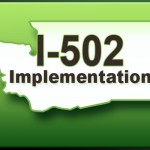 Washington State Liquor Control Board’s new proposed rules on marijuana licenses mistake Indian tribes for cities and counties on one hand, and ignore tribes on the other. The silence and misapprehension will lead to problems. Comments on the new regulations are due tomorrow, October 4 with a hearing scheduled for October 9. Washington tribal governments should make their voices heard.
• The pot rules should recognize Tribes’ rights to ban or regulate and tax reservation marijuana.
Washington State Liquor Control Board’s new proposed rules on marijuana licenses mistake Indian tribes for cities and counties on one hand, and ignore tribes on the other. The silence and misapprehension will lead to problems. Comments on the new regulations are due tomorrow, October 4 with a hearing scheduled for October 9. Washington tribal governments should make their voices heard.
• The pot rules should recognize Tribes’ rights to ban or regulate and tax reservation marijuana.
The new pot rules suggest that the state has a role in on-Reservation regulation of marijuana. See WAC 314-55-160. It does not. Pot sales are not liquor traffic, where tribes share regulatory authority with states. Pot is illegal under federal law and may be illegal under certain tribal laws. The notion in the new rules that the State “may” simply “notify” Tribes when someone wishes to sell marijuana on the reservation completely misses the point. Even more problematic, the State “shall” notify cities and counties. The state has no civil regulatory jurisdiction on the Reservation. The new rules should reflect this.
• The pot rules should recognize Tribal sovereignty over taxation if sales are not banned.
Now if Tribes wish to take another tack and legalize the drug (and the federal blind eye to Washington and Colorado legalization might arguably prevent them from treating reservations any differently), Washington should be barred from asserting pot taxes on such “value generated on the reservation,” whether sold to Indians or non-Indians. See WAC 458-20-192(c). Untaxed on-Reservation sales could undercut off-Reservation sales, which will carry a 25% tax. In addition, all the other regulatory constraints on pot sales included in the new rules (e.g. the one hundred mg THC limit) are clearly civil regulatory and have no place on the reservation. Decisions about how and whether to sell reservation pot are for Tribes.
• The pot rules should address intergovernmental agreements related to pot.
If Washington’s burgeoning pot economy takes off, we’re headed for the same types of intergovernmental fights the state has picked with tribes over liquor, tobacco, and fuel. The rules should not shy away from what we all know: Good agreements make good neighbors. To the extent the Washington State Liquor Control Board has the authority, it should welcome the security of intergovernmental agreements related to pot and reflect that goal in its rules.
Anthony Broadman is a partner at Galanda Broadman PLLC. He can be reached at 206.321.2672, anthony@galandabroadman.com, or via www.galandabroadman.com.




